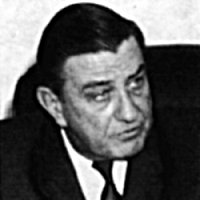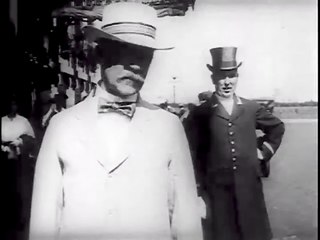
Franklin Delano Roosevelt, often referred to by his initials FDR, was an American statesman and political leader who served as the 32nd president of the United States from 1933 until his death in 1945. A Democrat, he won a record four presidential elections and became a central figure in world events during the first half of the 20th century. Roosevelt directed the federal government during most of the Great Depression, implementing his New Deal domestic agenda in response to the worst economic crisis in U.S. history. As a dominant leader of his party, he built the New Deal Coalition, which realigned American politics into the Fifth Party System and defined American liberalism throughout the middle third of the 20th century. His third and fourth terms were dominated by World War II. Roosevelt is widely considered to be one of the most important figures in American history, as well as among the most influential figures of the 20th century. Though he has also been subject to much criticism, he is generally rated by scholars as one of the three greatest U.S. presidents, along with George Washington and Abraham Lincoln.

The United States presidential election of 1936 was the thirty-eighth quadrennial presidential election, held on Tuesday, November 3, 1936. In the midst of the Great Depression, incumbent Democratic President Franklin D. Roosevelt defeated Republican Governor Alf Landon of Kansas. Roosevelt won the highest share of the popular and electoral vote since the largely uncontested 1820 election. The sweeping victory consolidated the New Deal Coalition in control of the Fifth Party System.

Earl Warren was an American jurist and politician who served as the 14th Chief Justice of the United States (1953–1969) and earlier as the 30th Governor of California (1943–1953). The Warren Court presided over a major shift in constitutional jurisprudence, with Warren writing the majority opinions in landmark cases such as Brown v. Board of Education, Reynolds v. Sims, and Miranda v. Arizona. Warren also led the Warren Commission, a presidential commission that investigated the 1963 assassination of President John F. Kennedy.

Hiram Warren Johnson was initially a leading American progressive and then a Liberal Isolationist Republican politician from California. He served as the 23rd Governor of California from 1911 to 1917 and as a United States Senator from 1917 to 1945. He was also Theodore Roosevelt's running mate in the 1912 presidential election on the Progressive ticket.

Franklin Delano Roosevelt Jr. was an American lawyer, politician, and businessman. He served as a United States Congressman from New York from 1949 to 1955, the first chairman of the Equal Employment Opportunity Commission from 1965 to 1966, and ran twice for Governor of New York. Roosevelt was also a son of President Franklin D. Roosevelt and First Lady Eleanor Roosevelt, and served as an officer in the United States Navy during World War II.

James Rudolph Garfield was an American politician and lawyer. Garfield was a son of President James A. Garfield and First Lady Lucretia Garfield. He served as Secretary of the Interior during Theodore Roosevelt's administration.

The 1994 Massachusetts gubernatorial election was held on November 8, 1994. Bill Weld was re-elected Governor of Massachusetts by the largest margin in state history.

Ethel du Pont Roosevelt-Warren was an American heiress and socialite and a member of the prominent du Pont family. She is known for her widely publicized marriage to Franklin D. Roosevelt Jr., son of the 32nd President Franklin D. Roosevelt and Eleanor Roosevelt and her eventual suicide in 1965.

The 1986 California gubernatorial election took place on November 4, 1986. Incumbent Republican George Deukmejian won easily in this rematch over the Democratic challenger, Los Angeles Mayor Tom Bradley. This was the largest gubernatorial victory since Earl Warren in 1950.

The California gubernatorial election, 1958 took place on November 4, 1958.

The 1916 Republican National Convention was held in Chicago from June 7 to June 10. A major goal of the party's bosses at the convention was to heal the bitter split within the party that had occurred in the 1912 presidential campaign. In that year, Theodore Roosevelt bolted the GOP and formed his own political party, the Progressive Party, which contained most of the GOP's liberals. William Howard Taft, the incumbent president, won the nomination of the regular Republican Party. This split in the GOP ranks divided the Republican vote and led to the election of Democrat Woodrow Wilson. Although several candidates were openly competing for the 1916 nomination—most prominently conservative Senator Elihu Root of New York, Senator John W. Weeks of Massachusetts, and liberal Senator Albert Cummins of Iowa—the party's bosses wanted a moderate who would be acceptable to all factions of the party. They turned to Supreme Court Justice Charles Evans Hughes, who had served on the court since 1910 and thus had the advantage of not having publicly spoken about political issues in six years. Although he had not sought the nomination, Hughes made it known that he would not turn it down; he won the nomination on the third ballot. Former Vice-President Charles W. Fairbanks was nominated as his running mate. Hughes was the only Supreme Court Justice to be nominated for president by a major political party. Fairbanks was the last former vice president, to be nominated for vice president.

Electoral history of Franklin D. Roosevelt, 32nd President of the United States (1933–1945); 44th Governor of New York (1929–1932).

The 1936 United States presidential election in California was held on November 3, 1936, as part of the 1936 United States presidential election. California voters chose twenty-two electors, or representatives to the Electoral College, who voted for president and vice president.

The United States Senate election held in California on November 7, 1950, followed a campaign characterized by accusations and name-calling. Republican Richard Nixon defeated Democrat Helen Gahagan Douglas, after Democratic incumbent Sheridan Downey withdrew during the primary election campaign. Douglas and Nixon each gave up their congressional seats to run against Downey; no other representatives were willing to risk the contest.

The 1950 Massachusetts gubernatorial election was held on November 7, 1950. Democratic incumbent Paul A. Dever defeated Republican Arthur W. Coolidge, Socialist Labor candidate Horace Hillis, and Prohibition candidate Mark R. Shaw.
Warren H. Vinton was an American politician from Maine. Vinton represented Gray, Maine in the Maine House of Representatives and was elected from Cumberland County to the Maine Senate in 5 separate elections. In 1878, Vinton was elected Senate President.

In the 1957 Virginia gubernatorial election, incumbent Governor Thomas B. Stanley, a Democrat, was unable to seek re-election due to term limits. Virginia State Senator Theodore Roosevelt Dalton was once again nominated by the Republican Party to run against former Democratic Attorney General of Virginia James Lindsay Almond, Jr..

In the 1953 Virginia gubernatorial election, incumbent Governor John S. Battle, a Democrat, was unable to seek re-election due to term limits. Virginia State Senator Theodore Roosevelt Dalton was nominated by the Republican Party to run against former Democratic U.S. Representative Thomas B. Stanley.

The 1932 United States presidential election in Minnesota took place on November 8, 1932, in Minnesota as part of the 1932 United States presidential election.





















